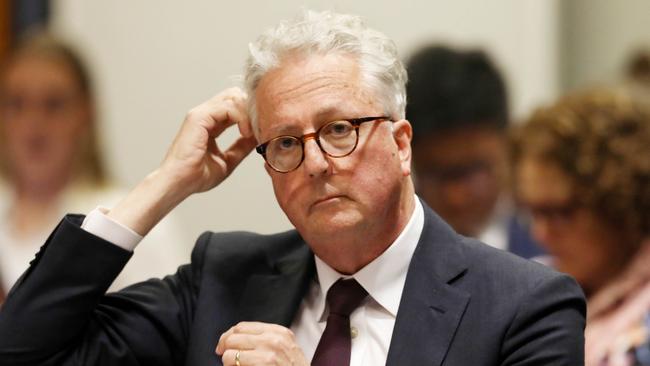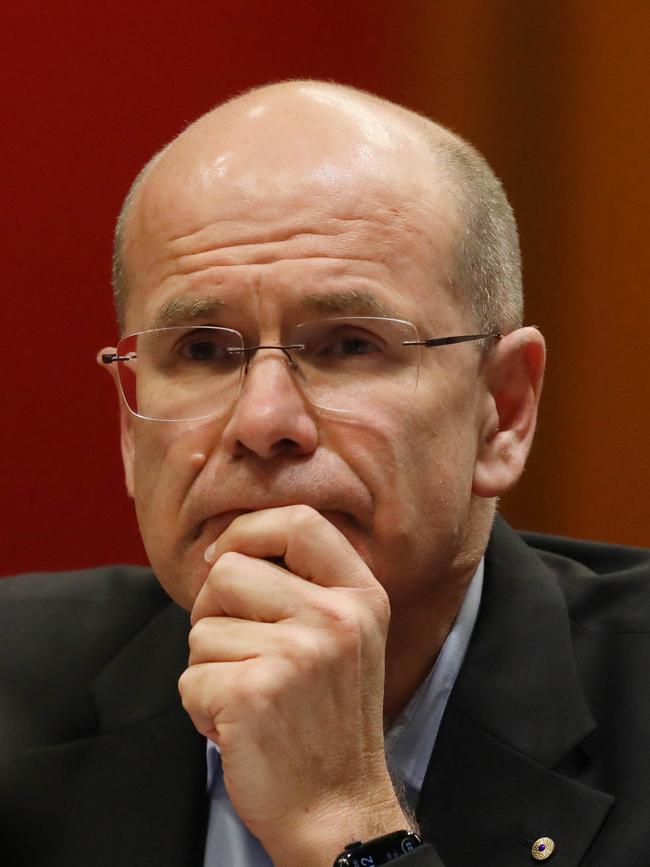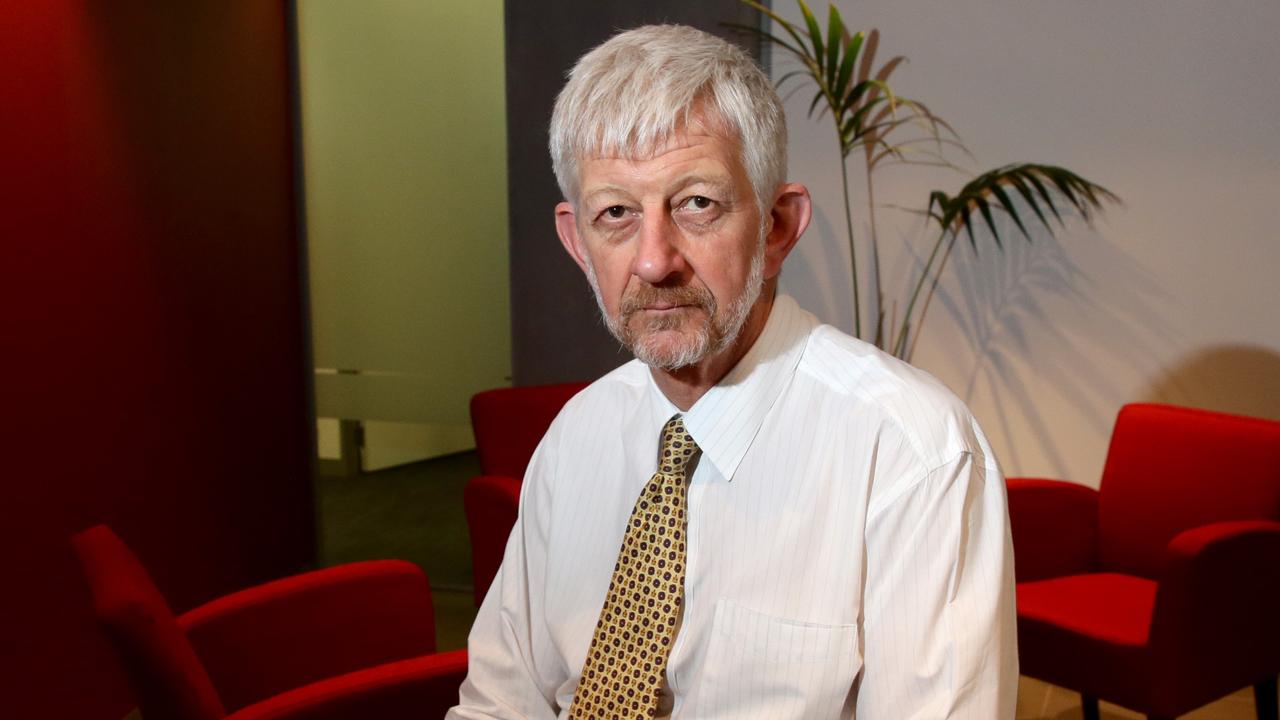International student crackdown ‘worse than Covid’, industry leaders warn
University vice-chancellors and private training colleges blow up over ‘unworkable’’ federal government plans to cap record numbers of international students in Australia.

You can now listen to The Australian's articles. Give us your feedback.
Data errors from top Australian universities have forced the federal government to recalculate cuts to foreign student numbers, as private training providers warn of 15,000 job losses.
The chaos caused by the Albanese government’s immigration crackdown on foreign students was laid bare in a Senate hearing on Monday that exposed a $674m hit to the revenues of 13 universities so far this year.
Federal Education Minister Jason Clare wants the Senate to pass legislation giving him unprecedented powers to cap international student numbers at every university and training provider next year but he has delayed announcing his 2025 target for foreign students after more than 700,000 international students flooded into Australia this year.
Ben Rimmer, the federal Education Department’s deputy secretary of higher education, research and international, revealed on Monday that two universities had sent in erroneous enrolment data. “Some universities have discovered in this process that the data they have certified as accurate and provided to us was in fact incorrect,’’ he told the hearing.
“Both the University of Sydney and University of Melbourne fall into that category. As a result, we’re currently going through some additional analysis to work out how to ensure better data quality … and to redouble our effort to get universities to enter accurate data into those systems.’’
University of Western Sydney vice-chancellor George Williams – a constitutional lawyer – branded the federal government’s draft legislation as “poorly drafted and not fit to be passed’’.
He said the bill’s proposal to let the education minister set international student caps every year was “totally unworkable’’.
“The concentration of power is surprising,’’ he told the committee. “It’s unfettered, coercive and concentrated in a minister in a way that you would normally associate with a Biosecurity Act or a piece of national security legislation.’’

Private training colleges warned the Senate inquiry that the crackdown on foreign students was “worse than Covid’’.
International Education Association of Australia chief executive Phil Honeywood said the Department of Home Affairs had slashed visa grants for international students to attend vocational education and training colleges in Australia by 73 per cent in the first six months of this year, compared with the first half of 2023, due to Ministerial Direction 107, issued by the former home affairs minister Clare O’Neil in February. He said visas for foreign students to enrol in English language colleges in Australia had fallen 60 per cent. “Jobs in the sector have already been lost,’’ he said.
English Australia chief executive Ian Aird said some owners of English language colleges stood to lose their homes. “Since December last year, student visa applications have been refused and delayed at record levels,’’ he said. “The visa cuts alone will cost an estimated 15,000 jobs over the year.
“Some of our members tell us that the current government has done more damage to their business in the last six months than Covid did.’’
Mr Aird said some English language colleges may be forced to close. “Regional universities have made redundant 50 per cent of their staff, private providers have made redundant 40 per cent of their staff,’’ he said. “We have providers who mortgaged the house to keep their business afloat and their staff employed, and are looking down the barrel of not just losing their business but their home.’’
The Innovative Research Universities said its seven members had enrolled 42,600 international students this year – 21 per cent of their total student numbers.
Executive director Paul Harris said numbers had fallen 20 per cent – costing the universities $135m in lost revenue – since the federal government slowed down visa grants to students considered high-risk.
Australian Technology Network of Universities chief executive Ant Bagshaw said the six universities stood to lose $542m in revenue this year.
Professor Williams said his university used revenue from fee-paying foreign students to buy food for poor local students. “We have the largest number of low-SES (socio-economic status) students in the nation and two-thirds of our students are the first in family to ever go to university,’’ he said. “We recently opened a ‘western pantry’ which provides rice, oats and other staples to our students because we’re hearing they’re not able to study and eat.’’
Professor Williams – who agreed to a 30 per cent salary cut to about $800,000 a year when he took the job a month ago – also warned that local families could lose $400 a week in homestay fees from international students.
University of Sydney vice-chancellor Mark Scott defended his $1.17m salary for a “complex and demanding job’’.
“The University of Sydney is a $3.5bn organisation and has a community of students and staff that’s probably in excess of 100,000,’’ he said.




To join the conversation, please log in. Don't have an account? Register
Join the conversation, you are commenting as Logout